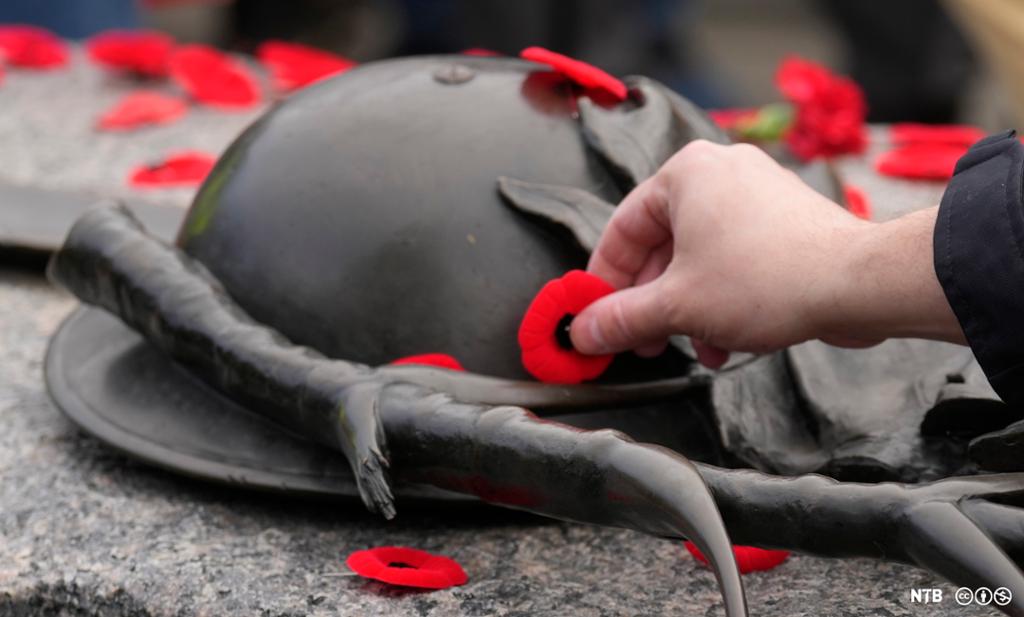In Flanders Fields by John McCrae
John McCrae was a Canadian army doctor who was stationed in Belgium during the First World War. After the killing of his good friend Alexis Helmer, McCrae was asked to conduct the burial service for Alexis since the chaplain had been called away on duty.
It is believed that later that evening, after the burial, McCrae began the draft for the poem 'In Flanders Fields'. McCrae discarded the sheet of paper on which he had written the poem, but a fellow officer found it and sent it to a number of magazines, where it was later published. It immediately touched the hearts of the British people. McCrae later died of pneumonia in January, 1918.

The war ended on 11 November, 1918. This day has since become known as Remembrance Day – a memorial day observed by all Commonwealth member states in honour of those who have died on behalf of their country. The day is also referred to as Poppy Day. On this day, you will see people wearing a poppy as a symbol of remembrance and hope. This symbolic act started in 1918, but McCrae would not live to see his poem’s success.
In Flanders fields the poppies blow
Between the crosses, row on row,
That mark our place; and in the sky
The larks, still bravely singing, fly
Scarce heard amid the guns below.
We are the Dead. Short days ago
We lived, felt dawn, saw sunset glow,
Loved and were loved, and now we lie,
In Flanders fields.
Take up our quarrel with the foe:
To you from failing hands we throw
The torch; be yours to hold it high.
If ye break faith with us who die
We shall not sleep, though poppies grow
In Flanders fields.
John McCrae, 1915